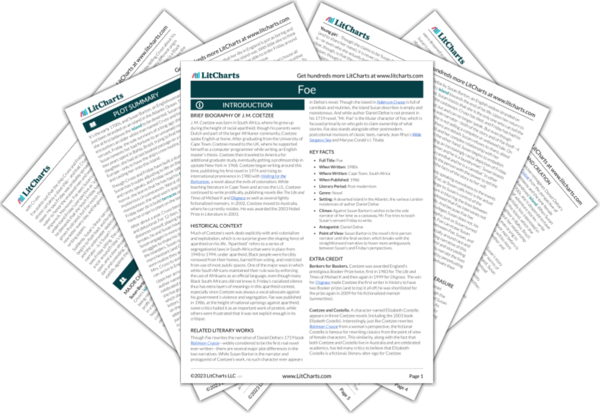Here and elsewhere, Foe acts as a corrective to Susan’s attempt at victimizing herself. But while Susan at last uses the language of slavery for herself, acknowledging that she is holding Friday in a kind of bondage, Foe is not a hero, either; the real
Robinson Crusoe novel indulges in the mythos around Friday’s cannibalism and writes slavery out of the narrative entirely. (Indeed, Friday is depicted as indigenous in Defoe’s real novel).


